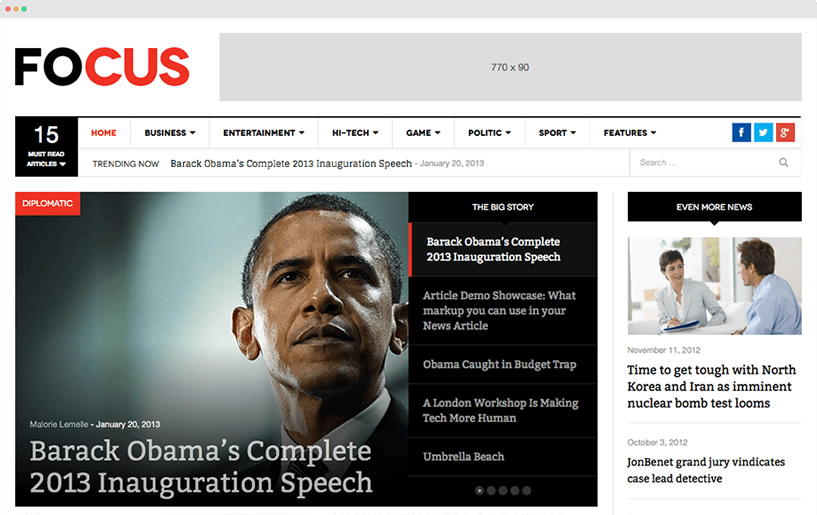Not known Facts About News Websites
Not known Facts About News Websites
Blog Article
News Websites Things To Know Before You Get This
Table of ContentsAn Unbiased View of News WebsitesNews Websites - QuestionsNews Websites Fundamentals ExplainedWhat Does News Websites Do?What Does News Websites Do?
It was down in the UK and Brazil but up some other countries, such as Greece, Bulgaria, and Poland (News Websites). This year, for the very first time, we asked about the various manner ins which individuals avoid the information and located that around half of avoiders (53%) were trying to do so in a broad-brush or regular way for example, by shutting off the radio when the news came on, or by scrolling past the information in social mediaYou claimed that you try to proactively avoid news.

I'm probably choosing to find out more light-hearted stories than I used to at the moment. M, 51, UK Turning my back on information is the only means I feel I can deal sometimes. I need to purposely make the initiative to transform away for my own mental health.
The Of News Websites
Careful avoidance of Ukraine news was highest in a lot of the nations closest to the problem, strengthening searchings for from our extra survey in 2015, not long after the battle had started. Our data might not suggest a lack of rate of interest in Ukraine from neighboring nations but instead a desire to take care of time or secure mental health and wellness from the really real horrors of battle.
Contrasting Finland with a politically polarised country such as the USA (see next graph) that is much less influenced by the war, we discover a very various pattern of subject avoidance. In the USA, we locate that consumers are more probable to stay clear of subjects such as nationwide politics and social justice, where arguments over concerns such as gender, sexuality, and race have actually come to be extremely politicised.
American national politics are pretty hazardous these days. I discover often that I need to separate from stories that simply make me mad. F, 61, USA For some individuals, bitter and divisive political disputes are a reason to turn off information altogether, however for some political upholders, evasion is commonly regarding blocking out perspectives you don't intend to hear.

Some Known Details About News Websites
Some are aiming to make information a lot more obtainable for hard-to-reach groups, broadening the information schedule, appointing more inspiring or favorable information, or accepting positive or remedies journalism that offer individuals a sense of hope or personal firm. In our study this year, we asked participants regarding their passion in these various methods.
This discusses why stories like Ukraine or nationwide politics do well with news regulars but can at the exact same time transform less interested users away (News Websites). Selective avoiders are much less interested in all sorts of information than non-avoiders but in family member terms they do seem to be more curious about favorable or solutions-based news

What Does News Websites Do?
2023). This might be real in the minute, yet over time it seems to be leaving lots of people vacant and much less completely satisfied, which might be threatening our link with and rely on the information. Across markets, total rely on news (40%) and rely on the resources individuals utilize themselves (46%) are down by a better 2 percent factors this year.
Without a doubt, via the rear-view mirror, the COVID-19 trust fund bump is plainly noticeable in the complying with chart, though the direction of travel afterwards has been blended. Sometimes their website (e.g. Finland), the count on increase has actually been kept, while in others the upturn looks more like a blip in see here a story of ongoing long-lasting decline.
Some of the highest possible reported degrees of media criticism are found in nations with highest possible degrees of question, such as Greece, the Philippines, the USA, France, and the United Kingdom. The lowest degrees of media criticism are typically in those with higher levels of trust fund, such as Finland, Norway, Denmark, and Japan.
An Unbiased View of News Websites
This year we asked participants about their preferences for message, sound and video when taking in information online. Usually, we find that the bulk still favor to read the news (57%), instead than watch (30%) or pay attention to it (13%), but younger people (under-35s) are more probable to listen (17%) than older teams.
Behind the standards we find considerable and shocking nation differences. In markets with a strong reading custom, such as Finland and the UK, around 8 in 10 still prefer to read on visit the website the internet information, yet in India and Thailand, around 4 in ten (40%) state they favor to watch news online, and in the Philippines that proportion mores than fifty percent (52%).
Report this page